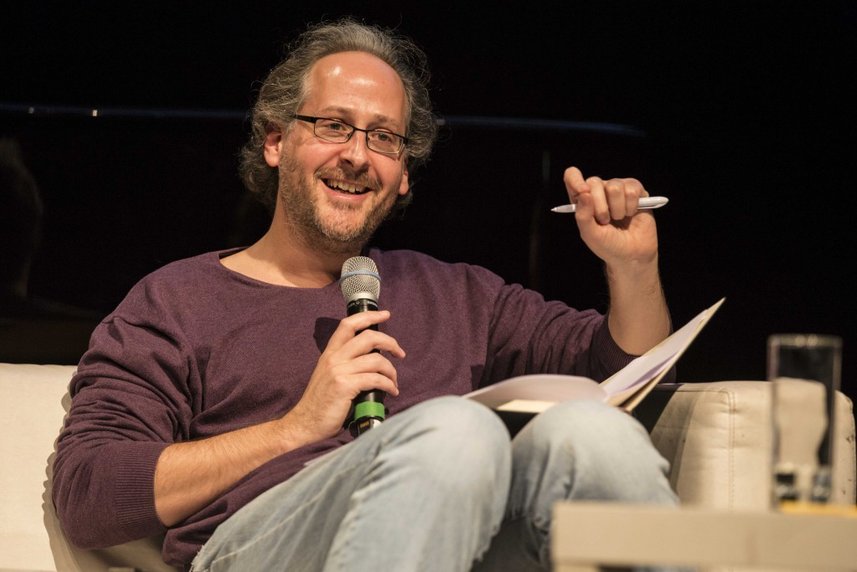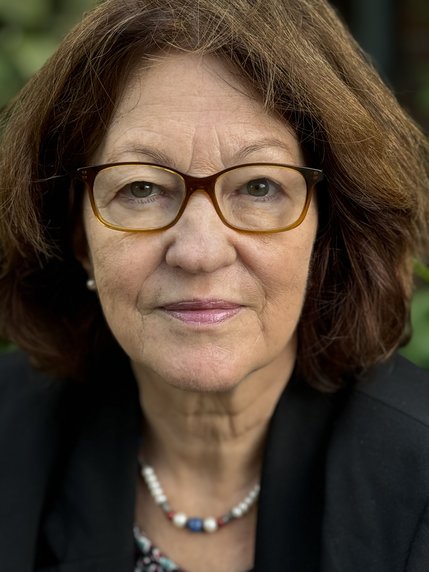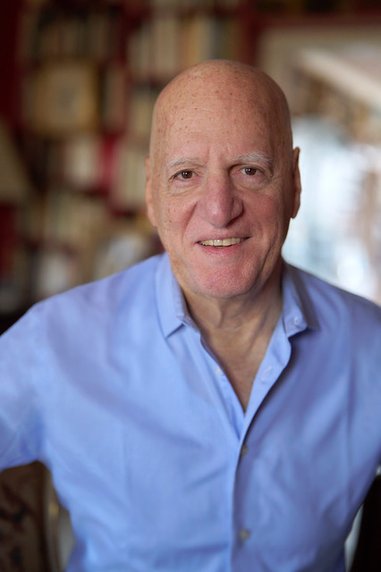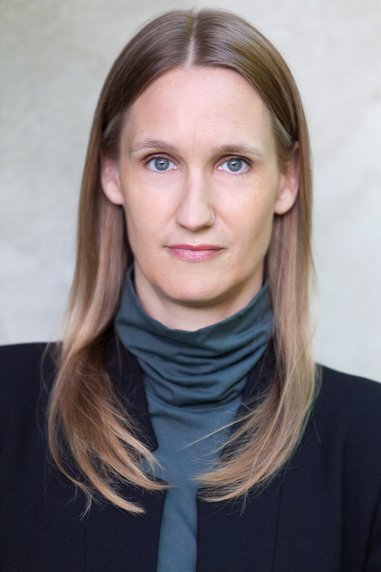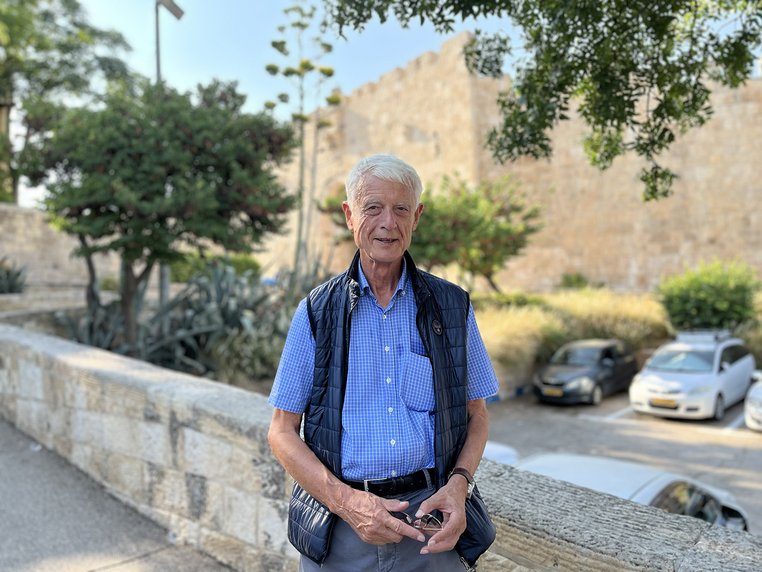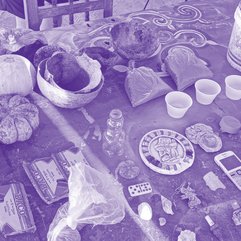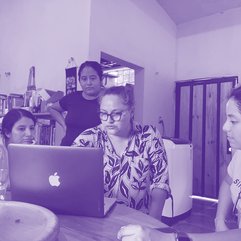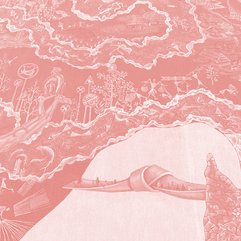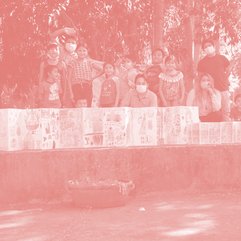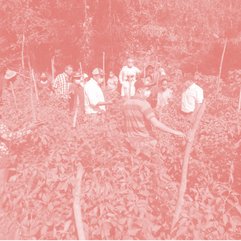Spore hosts: Time to talk: Antisemitism – Definitions, Interpretations, and Instrumentalization
A critical discussion about a phenomenon that divides society
19.30-21.30
Save the Date
for adults
in German

There is hardly any other term that causes as much discussion and misunderstanding in Germany as antisemitism. While everyone agrees that antisemitism must be resolutely combated, there is great disagreement about what should be categorized as antisemitic and what is legitimate criticism of Israel. Since the seventh of October, the boundaries have become even more blurred - what accusation can be made, what demand can be made, what slogan can be chanted, what sign can be held up? And who should decide this in Germany - politicians, courts or security forces? Can German authorities determine what is antisemitic when even academics are still debating various definitions and characteristics?
We aim to approach the phenomenon of antisemitism by shedding light on its historical development and analyzing the forms it has taken in today's society. How has its definition changed over time? Does modern antisemitism have the same roots as historic antisemitism? What does the creation of the state of Israel mean for the Jews themselves and what role does Zionism play for the self-image of Jewish people worldwide? Is criticism of Zionism a hidden criticism of Jews and therefore a new form of antisemitism? Or does anti-Zionism help with the overdue demarcation from an Israeli state that is based on injustice, occupation and unequal treatment, and is therefore a new form of antisemitism?
In Germany, responsibility for the Holocaust and the “Staatsräson” derived from it has led to unconditional support for Israel. The fight against antisemitism therefore centers less on the anti-Jewish conspiracy narrative and more on criticism of Israel and Zionism. The accusation of Israel-related antisemitism has thus become an instrument of extremist actors with which both Arab and Jewish critical-progressive individuals can be defamed.
The rise of radical right-wing forces in Europe brings back memories of a dark past. While this threat appears more real by the day, the German public is primarily discussing “Muslim” and “left-wing” antisemitism. Is politics focusing on marginalized groups in order to divert attention from the antisemitism that actually exists in mainstream society? Aren't Jews and Muslims both victims of racism and marginalization? And how could a better distinction be made between antisemitism, anti-Zionism and criticism of Israel in the interests of a domestic and foreign policy based on human rights?
Photo: Maurycy Gottlieb: Jews Praying in the Synagogue on Yom Kippur (1878).
Elad Lapidot is Professor for Jewish Thought at the University of Lille, France. Holding a PhD in philosophy from the Paris Sorbonne university, he has taught philosophy, Jewish thought and Talmud at many universities, such as the University of Bern, Switzerland, and the Humboldt Universität and Freie Universität in Berlin. His work is guided by questions concerning the relation between knowledge and politics. Among his publications: State of Others. Levinas and Decolonial Israel (Bloomington: Indiana University Press, forthcoming 2025), Politics of Not Speaking (Albany: SUNY Press, forthcoming 2025), Jews Out of the Question. A Critique of Anti-Anti-Semitism (Albany: SUNY Press, 2020), Hebrew translation with introduction and commentary (with R. Bar) of Hegel’s Phänomenologie des Geistes, Vol. 1 (Tel Aviv: Resling Publishing, 2020), Heidegger and Jewish Thought. Difficult Others, edited with M. Brumlik (London/New York: Rowman & Littlefield, 2018), and Etre sans mot dire : La logiqe de ‘Sein und Zeit’ (Bucarest: Zeta Books, 2010).
Stefanie Schüler-Springorum, Prof. Dr., Director of the Center for Research on Antisemitism at the TU Berlin and member of the Board of Directors of the Center for Jewish Studies Berlin-Brandenburg. Main areas of research: German-Jewish history, history of National Socialism, Spanish history, gender history in the 19th and 20th centuries; publications include: Gender History of German Jews: A Short Introduction. New York City 2024; Hans Litten – Anwalt gegen Hitler. Eine Biographie, revised and supplemented new edition, Göttingen 2022 (with K. Bergbauer and S. Fröhlich); Krieg und Fliegen. The Condor Legion in the Spanish Civil War, Paderborn 2010.
David Ranan (born in Tel Aviv in 1946) is a political scientist and non-fiction author. He is a fellow of the Center for Research on Anti-Semitism at the Technical University of Berlin and the Birkbeck for the Study of Anti-Semitism, University of London. He has published studies on attitudes of young Israelis to military service and attitudes of young Jews in Germany. He examines the anti-Semitism discourse in Germany and its politicization, as well as the problem of equating criticism of Israel with anti-Semitism, especially among Arabs and Muslims. Anti-Semitism among Muslims is the subject of his study published in 2018: Muslim Anti-Semitism: A Danger for Social Peace in Germany?
Werner Sonne worked for German broadcaster ARD for more than forty years as a radio and TV correspondent, during which time he covered the German government while living in Bonn and Berlin. He was also based in Washington, DC, and the former Eastern Bloc in Poland. He started to travel the Middle East extensively in 1973 when he reported on the Yom Kippur War in Israel and kept returning to the troubled region’s front lines―including during the Afghanistan conflict. From 2004 to 2012, he hosted ARD’s Berlin-based Morgenmagazin show. Since then, he has written about foreign and security policy for daily newspapers and magazines and has penned nonfiction books on similar topics. He is also the author of several political thrillers and historical novels, including “Where the Desert meets the Sea”, a novel about the battle for Jerusalem and the founding of the state of Israel in 1948.
Moderation
Political scientist and journalist Kristin Helberg spent seven years reporting from Damascus on the Middle East for German, Austrian and Swiss radio programs as well as various print and online media. Today she works as an author, Middle East expert and presenter in Berlin. Herder Verlag has published her book “Verzerrte Sichtweisen - Syrer bei uns. Von Ängsten, Missverständnissen und einem veränderten Land” (2016) and ”Der Syrien-Krieg. Solution to a world conflict” (2018). As a Mercator Foundation scholarship holder, she researched the Syrian diaspora in Germany.



